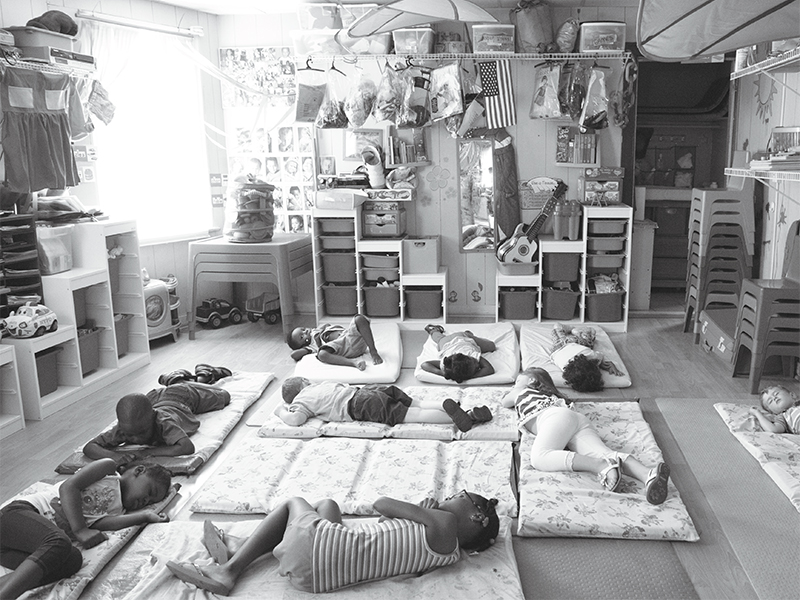Last night, President Barack Obama delivered his sixth State of the Union speech. As we’ve come to expect from such speeches, it was full of vagaries and statements that most people couldn’t possibly disagree with: “And as a new generation of veterans comes home, we owe them every opportunity to live the American Dream they helped defend.” Some statements are clearly in there to provide a laugh for those who are firmly in his camp: “If you truly believe you could work full-time and support a family on less than $15,000 a year, go try it.”
Most of all, the speech was full of political language that was crafted to sound appealing, but in fact obscures a much more complex truth. Below, we’ve compiled data and research that fact-check, confirm, and/or complicate the statements about the economy and social services that the president made last night.
Tonight, after a breakthrough year for America, our economy is growing and creating jobs at the fastest pace since 1999.
While it’s true that the economy is in recovery, back in April, we covered how uneven the recovery truly is. This is illustrated in the graph below:

To be fair, Obama went on to address this unevenness later in the speech:
Will we accept an economy where only a few of us do spectacularly well? Or will we commit ourselves to an economy that generates rising incomes and chances for everyone who makes the effort?
Unfortunately, the answer to his first question is probably “yes, we will accept this inequality.” For our January/February print issue, Helaine Olen reviewed three books that explain why, though the average American is worried about inequality, a series of psychological and financial barriers is keeping us from collective action.
Moving along to energy policy, Obama said:
We believed we could reduce our dependence on foreign oil and protect our planet. And today, America is number one in oil and gas. America is number one in wind power.
Considering gas prices are lower than we’ve seen in a long time, it’s easy to feel excited about these statements. As Richard Heinberg wrote last April, “the problem is hidden from view by oil and natural gas production numbers that look and feel just fine.” He explains that, due to the way we extract energy, profit margins are falling to alarming levels. Switching to renewable energy will help, but ultimately, we’ll have to learn to operate as a “Lean Society.”
Obama also mentioned a slew of reforms meant to strengthen the middle class.
In today’s economy, when having both parents in the workforce is an economic necessity for many families, we need affordable, high-quality childcare more than ever.
It’s true that more families need childcare—often at late or odd hours, due to the unpredictability of shift work. Our feature story last year, “The Rise of Extreme Daycare,” struck a chord for many readers who had not considered this dilemma. The story and accompanying photos show life inside a 24-hour daycare, a loving place that is also a sad statement about the state of the American worker.

Another family-centric proposal from Obama involves equal pay for women.
Of course, nothing helps families make ends meet like higher wages. That’s why this Congress still needs to pass a law that makes sure a woman is paid the same as a man for doing the same work. Really. It’s 2015. It’s time.
Obama didn’t mention one odd fact about the gender pay gap: Women are punished (wage-wise) when they become parents, while men actually get paid more once they’re dads. The researcher behind that study says, “The motherhood penalty is smaller where high-quality, universal child care is available.”
He did, however, tackle job training:
We still live in a country where too many bright, striving Americans are priced out of the education they need. It’s not fair to them, and it’s not smart for our future.
As Kate Wheeling wrote earlier this month, the effects of Obama’s community college plan can go far behind individual students. The increased worker productivity and higher wages would be a boon to the economy—especially since, according to one study, the wage gains apply to students who don’t finish their degrees, too.
And lastly, Obama pointed out that improving our country’s infrastructure could be a popular, bipartisan endeavor:
Twenty-first century businesses need 21st century infrastructure — modern ports, stronger bridges, faster trains, and the fastest Internet.
This month, we’ve written twice about infrastructure projects. First, our urban development columnist Jim Russell notes that the latest plan to improve public transit in Atlanta effectively ignores the suburban poor—and that’s increasingly true in cities across the country. As Max Ufberg points out in a review of a recent geography study, while some cities intend to improve social equity with their plans, they require more deliberate planning and rigorous metrics.
There’s a lot more to dig into for Obama’s speech—this is only the start. Buried under his political platitudes and “I won both of them” swagger are economic proposals that could (if passed) have lasting effects on American society. It’s essential to look to research and experts who have a long view on what those effects really will be.




